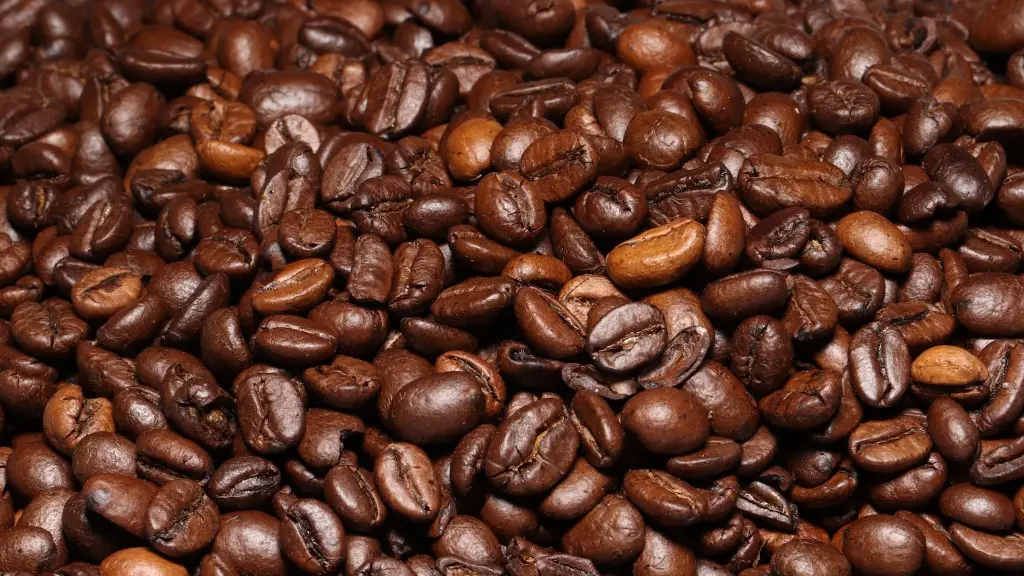Coffee has been a popular beverage for generations, and with its bold flavor and energizing properties, it’s easy to understand why. But for those who have ulcerative colitis, a chronic inflammatory condition of the gastrointestinal tract that affects the colon, coffee’s caffeine and acid content may be a reason for pause. Studies show that ulcerative colitis (UC) is influenced by a coffee diet, meaning the beverage may cause adverse reactions in people with UC. Therefore, the answer to the question “Can you drink coffee with ulcerative colitis?” is not so straightforward.
Ulcerative colitis is a type of Inflammatory Bowel Disease (IBD), which includes Crohn’s Disease. IBD is related to diet, lifestyle, and environmental factors, and it can’t be cured.UC causes inflammation in the gastrointestinal tract that leads to pain and symptoms such as abdominal cramping, diarrhea and rectal bleeding. Many treatments are available for UC, including dietary changes, lifestyle modifications, and medication.
Research shows that caffeine and certain other compounds in coffee may trigger UC symptoms. According to the Mayo Clinic, people with UC should try to moderate their caffeine intake. Caffeine may alter the gastrointestinal environment, increasing inflammation and causing further damage. Coffee also contains acidity-inducing compounds that can aggravate the already-inflamed lining of the gastrointestinal tract. People with UC should also pay attention to other food/drink or lifestyle factors which can lead to flare-ups.
When it comes to drinking coffee with ulcerative colitis, the best advice is to be mindful of what type of coffee you drink and the amount you take. Some studies suggest that decaffeinated and cold brew coffees may be the least irritating to the gastrointestinal tract because they contain the least amount of iron chelators and caffeine. Tea can also be a substitute for coffee, especially herbal teas, as these contain fewer irritants. However, it is important to discuss diet and lifestyle changes with your doctor and nutritionist as they will be able to provide tailored advice.
If you’re concerned about drinking coffee with ulcerative colitis, there are a few steps you can take to reduce or eliminate your risk of flare-ups. Avoid acidic beverages, such as juice and soda, as the acidity can exacerbate your symptoms. Additionally, drink plenty of water throughout the day to keep your body hydrated. Finally, avoid and skip foods that are known to trigger your ulcerative colitis symptoms. Sticking to a healthy diet and lifestyle could help manage your symptoms.
Coffee Alternatives and Herbal Teas
If you’re looking to reduce your risk of flare-ups while still enjoying the benefits of caffeinated beverages, consider opting for coffee alternatives like herbal teas. As previously mentioned, herbal teas contain fewer acids and irritants than traditional coffee beverages, which could decrease UC symptoms. Studies also show that herbal teas can be just as energizing as caffeine as they contain natural compounds that stimulate the production of energy. Some suggested herbal tea substitutes include black tea, green tea, oolong tea, chamomile tea, peppermint tea, and ginger tea.
Limit Your Caffeine Consumption
In addition to herbal teas, it’s important to limit your consumption of caffeinated beverages, such as coffee, tea and energy drinks, if you have UC. Start by reducing your daily consumption of caffeine-containing beverages and observing any changes. If you’re concerned about tiredness and fatigue, look for natural sources of energy, such as herbal teas, fruits and nuts. Regular exercise and adequate sleep also help keep your energy levels up.
Treat Flare-ups Promptly
If you do have coffee, it’s important to treat any flare-ups promptly to reduce the risk of further damage to the gastrointestinal tract. Your doctor may prescribe medications to help reduce your symptoms, but it’s also important to make dietary changes. An elimination diet is often used to identify food and beverages that may be triggering symptoms. You can also opt for supplements that are beneficial for UC, such as probiotics.
Discuss Changes with Your Doctor
Finally, it’s always best to discuss any diet and lifestyle changes with your doctor before making them. He or she can help you identify foods and beverages that could trigger UC symptoms and adjust your medication accordingly. Your doctor can also provide tailored advice regarding coffee consumption and coffee alternatives that suit your individual needs.
The Role of Lifestyle
In addition to dietary changes, lifestyle modifications can also be beneficial in managing your UC symptoms. Stress can exacerbate your symptoms, so it’s important to find ways to reduce your stress levels. Regular exercise, adequate sleep, and coping strategies can help. Additionally, it’s important to ensure that you have a balanced diet and avoid skipping meals. Eating smaller and more frequent meals can help provide essential nutrients and energy.
Over the Counter Medication
If lifestyle changes are not enough to manage your symptoms, you may need to consider over-the-counter (OTC) medications. Medications such as anti-diarrheal agents, anti-inflammatory drugs, and antispasmodics may be used to help manage your UC symptoms. It’s important to note that OTC medications are not a substitute for prescribed medications and should only be used to supplement them.
Avoid Alcohol and Smoking
Finally, it’s important to remember that alcohol and smoking can both aggravate your symptoms and make them worse. There is also some evidence to suggest that these substances can increase your risk of developing UC. If you have UC, it’s best to avoid alcohol and smoking. Even second-hand smoke could trigger flare-ups so it’s important to ensure that you’re in a smoke-free environment.
Symptom Management at Home
Ulcerative colitis is a chronic condition that requires medication, lifestyle changes, and dietary modifications to manage its symptoms. If you’re looking to keep flare-ups under control, try to limit your caffeine intake, avoid acidic beverages, and opt for coffee alternatives such as herbal teas. Additionally, it’s important to identify and skip foods that trigger your UC symptoms, treat flare-ups promptly, and avoid alcohol and smoking. Finally, discuss your diet and lifestyle changes with your doctor and nutritionist for tailored advice.



